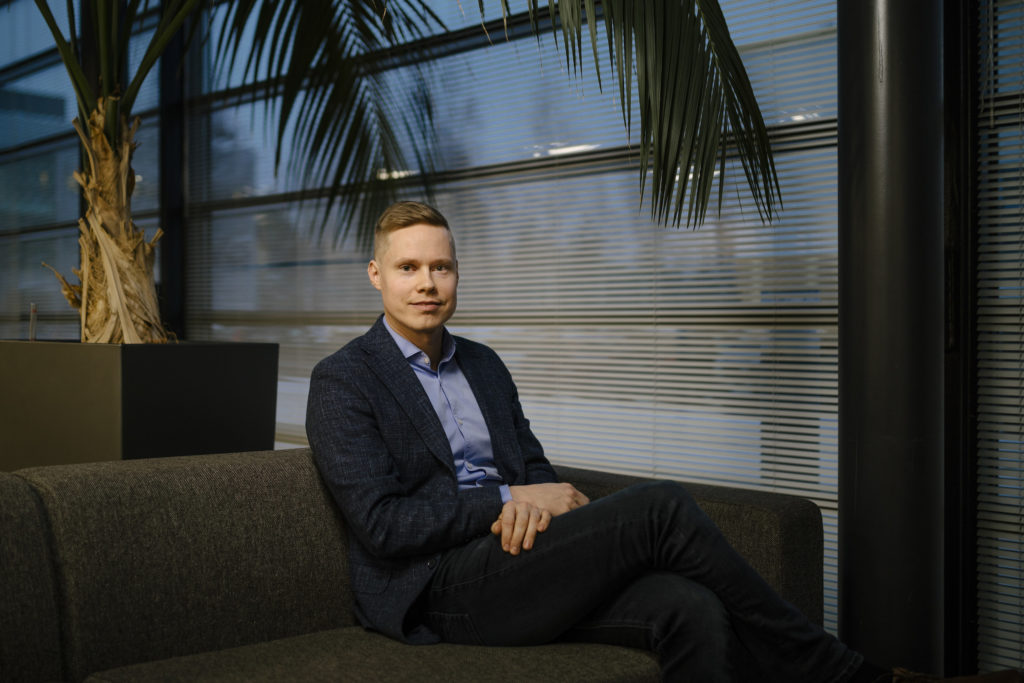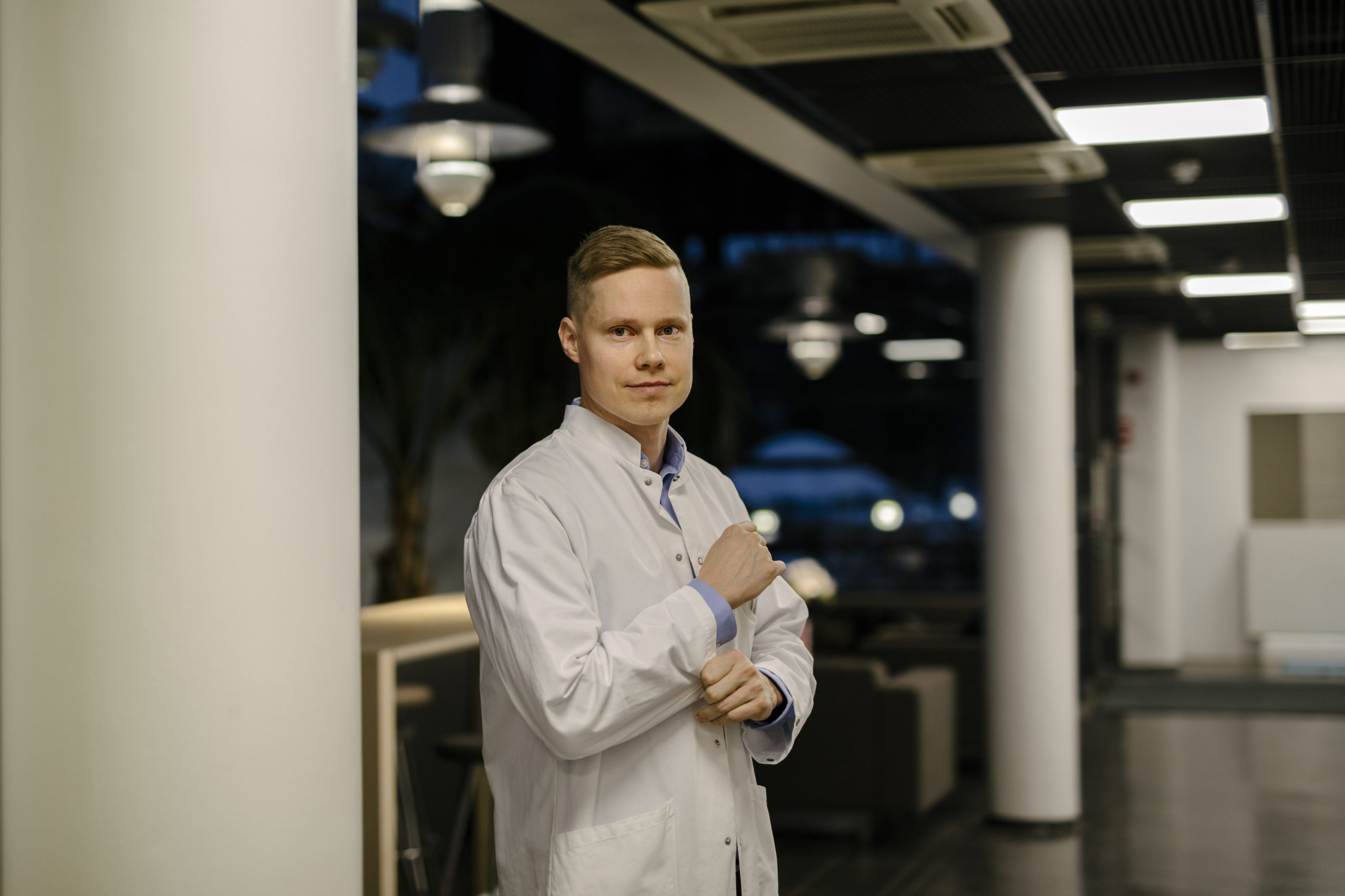Through his research in the medical and technological domains, Dr. Jukka Kortelainen, MD PhD, has created a solution that helps doctors in the intensive care unit monitor patients’ brain functions. He is the CEO and founder of Cerenion.
What problem is Cerenion out to solve?
“Monitoring patients’ brain activities in the ICU environment is a laborious process, which involves different medical experts from doctors to nurses, neurologists, and clinical neurophysiologists. The monitoring is carried out with an EEG machine that records the electrical activity of the brain.
Oftentimes, the limited availability of the equipment and medical staff on call can delay the process. As a result, getting started with the treatment can take hours, sometimes even days. Meanwhile, the patient might be experiencing brain activities that require immediate attention.
With our product, doctors at the ICU can monitor patients’ brains with technology that is integrated into an easy-to-use recording instrument and utilize its analytics in the treatment. This way, we can eliminate the bottlenecks in the process and oversee brain activities for longer periods of time. Besides improving the treatment of the patient, this also lowers the costs of care significantly.”
What kind of research is Cerenion based on?
“I wrote my doctoral dissertation about EEG-based depth of anaesthesia measurement in the Intensive Care Unit of the Oulu University Hospital. Through my research and work, I realized that there weren’t any straightforward tools available for assessing the brain function of intensive care patients.
This led to the idea of commercialization. We wanted to combine scientific data with commercially viable technology to make patients’ brain monitoring less complicated. Signal analytics, machine learning, and AI played a significant role in product development.”
What similarities are there in the work of a researcher and an entrepreneur?
“Everything that has to do with creating something new. As a startup entrepreneur innovating new services and products, you’re often staring at a blue ocean – uncontested market space.
Researchers are also sailing on uncharted waters in their search of new discoveries. Somewhere in the horizon, there’s land where the results can be found and get published. Publications are a researcher’s business.
There are also similarities in ways to get funding. A researcher must learn how to tell about his or her idea and why it should be supported. Similar pitching happens in startups, especially when dealing with investors and customers.
Any kind of experience in applying for funding and grants can be valuable when starting a business. Several institutions, such as Business Finland, ELY Centre, and European Commission offer funding to both research projects and businesses. In fact, a grant I received from KAUTE back in the day has helped me take my research to the level where we are today with Cerenion.”

What kind of attitude is required from a researcher entrepreneur?
“A researcher must accept that an entrepreneur cannot focus on a narrow field of expertise. There are many different problems that only you alone can solve. There are also less possibilities to change the scope and methods of your work on a whim.
Entrepreneurs often have their hands full of practical tasks before the organization grows big enough to share responsibilities to multiple people. At the early stage of the business, the employees all have diverse roles. Luckily you can get help from the outside if you have the right contacts.”
What does the future look like for Cerenion?
“Our future looks very action-packed. We recently introduced our first product to the market and licensed it to our manufacturing partner company. We’re at an exciting phase in our company, as our product is being introduced at hospitals and we’re starting to receive feedback.
We have integrated our analytics tool into our partner’s equipment and they are selling it forward to the hospitals. Our product has acquired a CE-mark, which means it is ready to be sold in Europe. We’re currently working on getting such marketing authorization in the United States and later in Asia as well. They are both huge markets in our business.”
Are you going to return into research some day?
“Actually, research has followed me around throughout my career as an entrepreneur. This has been a good thing for Cerenion too, because clinical validation and research data play a significant part in our product development.
At the moment, I feel I’m in my dream job. I have done research, which has led into the commercialization of my idea and turning it into a marketable product. We can help patients and ICU doctors with it, which I find very rewarding. Even though running a startup can be burdensome at times, I hope the research element of it all will stick around.”
Cerenion Oy has developed the world’s ï¬rst practical method for measuring the brain function of intensive care patients. Cerenion’s patented C-Trend® technology reveals the status of the brain as one simple score – at the bed-side and without requiring any changes to the care of the patient. The solution works by combining standard EEG-measurement with advanced machine learning algorithms and artificial intelligence. The technology has the potential of improving both the quality and the cost of intensive care.
Jukka Kortelainen is the CEO and co-founder of Cerenion. He is a finalist for the Young Researcher Entrepreneur of 2020 award.
